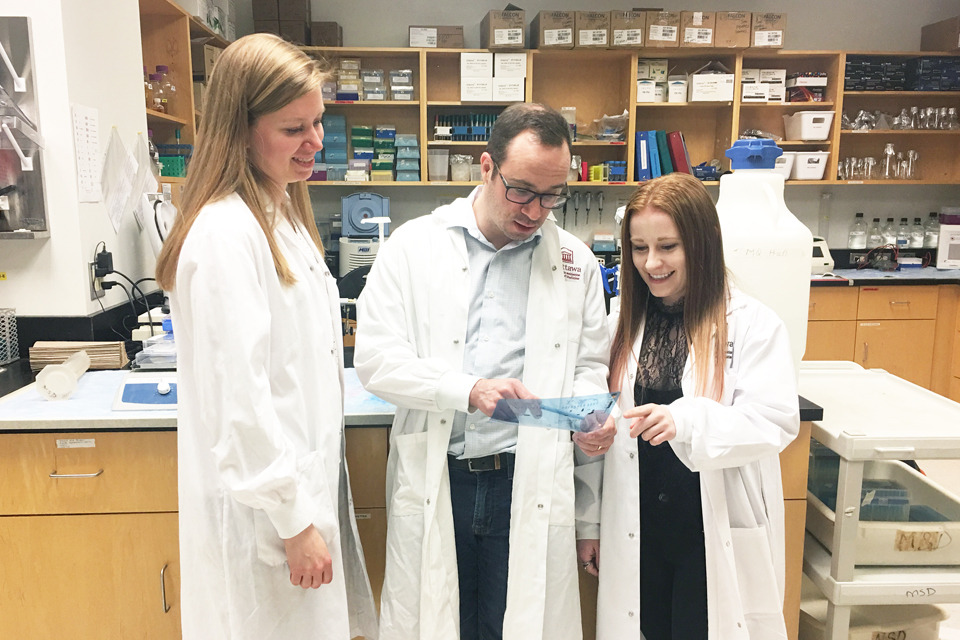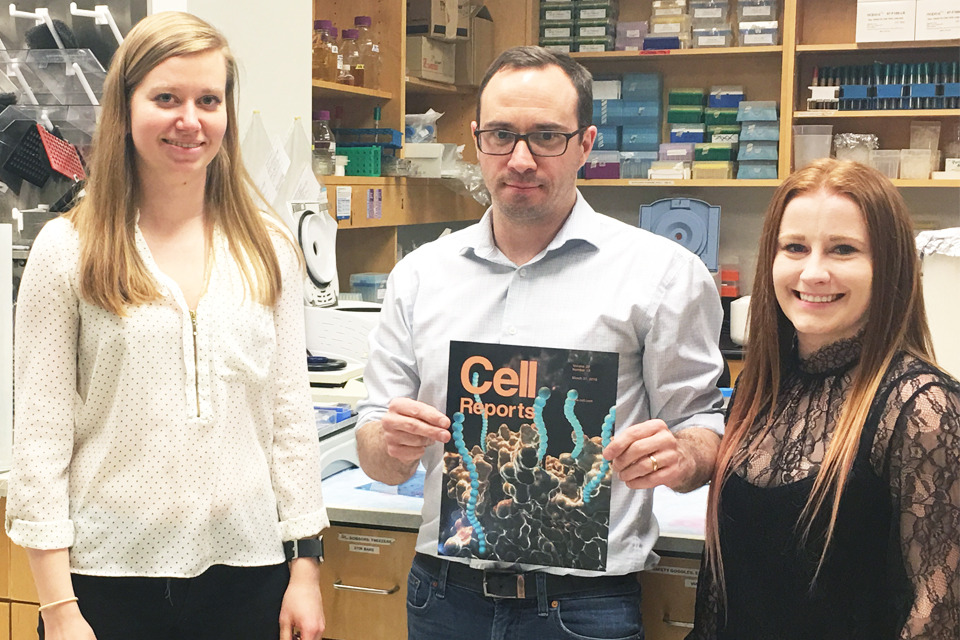Dr. Michael Downey’s recent publication in Cell Reports titled “A Screen for Candidate Targets of Lysine Polyphosphorylation Uncovers a Conserved Network Implicated in Ribosome Biogenesis” is an example of the importance and potential of basic science research.
This latest paper expands on a unique protein modification that does not require enzymes – an area that scientists are still seeking to understand. In biology, proteins are responsible for cell growth and division in response to many changing factors at any given time, such as oxygen levels, stress and environmental changes.
Under Dr. Downey’s supervision in the Department of Cellular and Molecular Medicine (CMM), student researchers Amanda Bentley-DeSousa and Charlotte Holinier co-authored this piece along with contributions from other peers including a collaboration with Sam Kajjo in Dr. Adam Rudner’s lab in the Department of Biochemistry, Microbiology and Immunology (BMI).
Together with international researchers from New York and Dublin as well as colleagues from Carleton University, uOttawa CMM students Bentley-DeSousa and Holinier identified the biological significance of this protein modification and Kajjo from BMI contributed the biochemical characteristics for this modification.
“It’s unclear what specific opportunities could exist based upon these findings; it’s a new protein modification altogether,” said Dr. Downey. “This could open up an entirely new field of research on the way cells grow, divide and communicate with each other. Protein modification is a critical aspect of cell growth and understanding that may help us understand cell growth in relation to cancer – and could have application for designing new drugs that limit cell growth by targeting this modification.” In the future, he and his students will examine how this protein modification functions on a systems-wide or “whole body” level.
Yet, Dr. Downey emphasized that this work highlights the importance of basic research.
“When we started out this study we didn’t have a medical application in mind,” he explained. “Sometimes the most important studies come from trying to understand basic ways that cells work and it’s only after that process that a medical application becomes apparent. Thus, it is critical to continue to fund interest-driven scientific research.”


